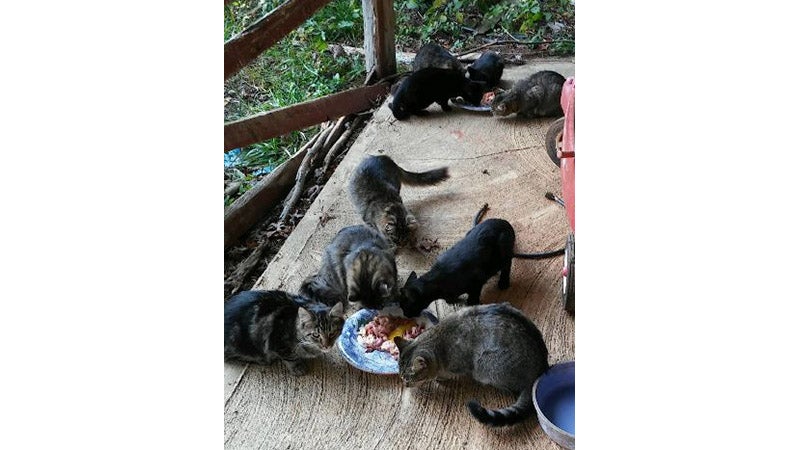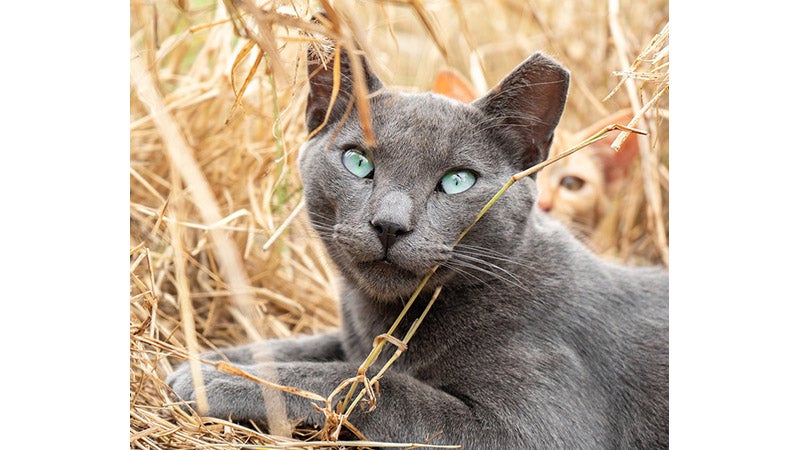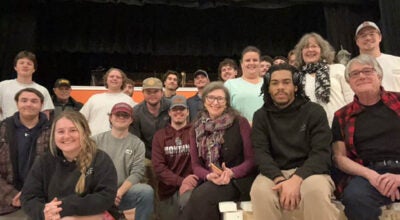Organization aids wild cat colonies
Published 2:34 pm Tuesday, November 2, 2021
|
Getting your Trinity Audio player ready...
|
A Charlottesville-based nonprofit is helping to improve the lives of feral cats and reduce wild cat colonies throughout central Virginia, including in Buckingham and Cumberland counties.
The Cat Action Team (CAT), formed in 2018, is a nonprofit organization which helps to feed, vaccinate, spay/neuter and provide medical care to feral cats in and around Charlottesville. The organization aims to help reduce the population of wild cats in the area and improve the quality of life for cats living in the wild.
Betsy Ballenger, president of CAT, has been involved in feline rescue for almost 40 years. In a Friday, Oct. 29, interview, Ballenger said she moved to Virginia in 2012 where she worked for several years with the nonprofit organization Voices for Animals. As the organization began to focus more on canines, Ballenger left in 2018 to form a group dedicated to felines — the Cat Action Team.
Based out of Charlottesville, CAT serves 12 counties: Buckingham, Cumberland, Albemarle, Augusta, Culpeper, Fluvanna, Goochland, Greene, Louisa, Madison, Nelson and Orange.
According to Ballenger, CAT has three main programs.
The first and most important program of CAT is the Trap, Neuter, Vaccinate, Return program, or TNVR. Through TNVR, CAT volunteers work with members of the public who have come across or been inundated with large colonies of feral cats living together in the wild. The team works to raise money in order to help capture these cats and get them spayed/neutered, vaccinated and returned to the wild. Before being released, the cats have their left ear “tipped” by a vet (clipped) as a record that the cat has been fixed and vaccinated.
Ballenger explained feral cats are different from house cats in that they are not socialized and are considered wild. Colonies can range from five to 40 felines and are often located around dumpsters or on rural farms.
Spaying and neutering these cats helps to control the wild cat population by preventing reproduction. A female cat can become pregnant at just four months of age and can have up to three litters of kittens a year who go on to produce more wild cats. According to the North Shore Animal League of America, spaying and neutering just one female and one male cat can prevent more than 2,000 unwanted births in the span of four years.
These large colonies of wild cats can be preyed upon by predators and are subject to starvation and untreated injuries/illnesses.
“They will live pretty miserable lives unless something is done to stop that cycle,” Ballenger noted.
Through TNVR, Cat works with local vets and clinics who often offer reduced rates to help fix, vaccinate and treat wild cats. The team helps to loan traps to capture the cats and also helps to transport the felines to and from appointments.
In addition to TNVR, CAT runs a successful Foster-and-Adoption Program. While many cats found in the wild are feral and therefore unsociable, when volunteers come across young kittens or stray cats who are friendly and clearly not feral, those cats are vetted and taken to fosters who work with the team to house and adopt out sociable felines.
CAT also runs a Pet Retention and Colony Maintenance Program which helps low-income pet owners to care for their cats in their home. The program also works to maintain healthy feral cat colonies and small groups by providing food and other services to residents who cannot afford to provide food for large feral cat colonies.
Ballenger noted CAT operates under the principle that it is not a cat’s fault it has been introduced to the wild, adding locals often report hearing of or even seeing humans dumping cats and kittens on farms or in other locations.
She emphasized the programs offered by the nonprofit help not only to reduce the size of feral cat colonies but to reduce the suffering wild cats often experience, including colonies found in Buckingham and Cumberland.
When asked about how residents can help with the nonprofit’s mission, Ballenger said the group is always looking for volunteers for transporting, trapping and fostering cats. And as the Cat Action Team is a volunteer-based organization which runs solely on donations, it’s also regularly accepting contributions.
To learn more about volunteering with CAT and supporting its mission, go to https://catactionteam.org/get-involved.
If you’d like to donate to the organization’s efforts, log on to https://catactionteam.org/donate.
Cat Action Team will present its 2021 Furball Fair fundraiser Sunday, Nov. 7, from 11 a.m. – 4 p.m. at Castle Hill Cider in Keswick. The event will include a silent auction, local artisans, food trucks, live music and more.







